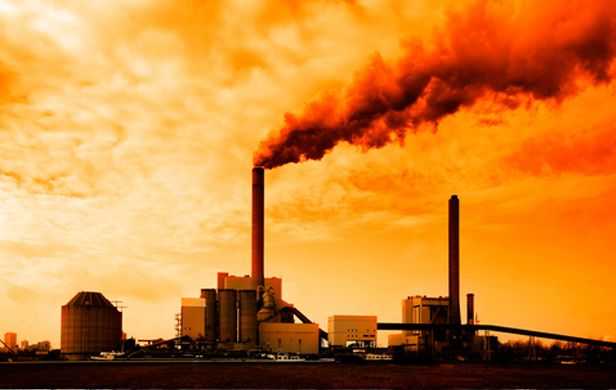“Story is for a human as water is for a fish,” writes Jonathan Gottschall in his book, The Storytelling Animal. Indeed, this would seem to be so. For hundreds of thousands of years — probably for as long as we have been a speaking species — stories were the way we conveyed important ideas to each other. Of course, hunter-gatherers must have exchanged factual information about the grazing habits of game and the location of berries, nuts and roots. But stories have always been the personalizing, humanizing and empathizing process that has defined relationships, bound us into communities, and connected us to our surroundings. Stories have been the metaphorical and mythological language that has given context, justification and meaning to our very existence.
Think of stories as the poetic interpretations of a reality that always escapes objective understanding. So we try to represent this deep and endless mystery in a narrative of language rich and resonant in symbolism. Each story is intended to describe and explain the meaning of events, to bond the listener to the speaker, and then to connect them both by shared experience to a common place. The implied depth of the story invariably exceeds the stated one. In Pauline Le Bel’s soon-to-be-published book, Becoming Intimate with the Earth (Collins Foundation Press, 2013), she cites a wonderful example. During the colonization of northern British Columbia, an official of the federal government told the Tsimshian people that he was claiming their land as a part of Canada. One of the Tsimshian elders asked the official, “If this is your land, where are your stories?” According to Le Bel’s account, ”The official was silent while the elder went on to tell a story about the land in his own language.”
Stories, therefore, contain a truth that is not represented in legal documents and scientific facts, just as a birth certificate does not remotely represent the love and care that parents have for a child. The emotional depth is simply not present in a record of facts. The important human information, according to Burkeman in his brilliant exploration of this subject (Guardian Weekly, Jan. 11/13), is “suffused with moral drama: strivings, betrayals, victories, lies, conflicts and reconciliations. Drama happens in human minds, not complex systems,” he writes. And herein lies the danger of stories, notes Burkeman, because they “strip facts away, dragging attention to what’s most narratively satisfying, not what’s most important.”
Burkeman’s poignant essay emphasizes the point that, “the most important issues of our era aren’t particularly interesting. Worse than that, there’s good reason to believe in an inverse relationship between interestingness and importance.” For example, when global levels of atmospheric carbon dioxide reached 400 parts per million for an entire day — the first time in about 3 million years, and a terrible milestone in the unfolding catastrophe of climate change — the report received only passing mention in the interior pages of North American newspapers. But the escape of three American women, held in enslavement in a Cleveland house for ten years, commonly received front page coverage —The Globe and Mail gave it an entire double-page spread. The freedom of the women, of course, was important to them and their families. But rising carbon dioxide concentrations are an ominous portent, with huge implications for the ecologies of the entire planet and for all humanity.
However, 400 ppm is just a number, so it elicits almost no response. As an abstract statistic, it’s wholly disconnected from the human narrative. Burkeman cites the marine biologist Randy Olson who refers to global warming as “the great unmentionable”, saying, “I dare you to find any major program studying it, and willing to call it what it is.” Olson adds, “You’ll find huge budgeted projects examining public attitudes towards climate…. But what about the simple fact that climate is quite possibly THE most boring subject the science world has ever had to present to the public.” Why so boring? Because it is not a story.
Of course, climate change creates stories. The extraordinary hurricanes that struck New Orleans and New York generated innumerable news items replete with tales of heroic struggle, harrowing escapes and tragic deaths. The same happened with unprecedented floods and raging bush fires in Australia, California and Europe. But the focus of attention invariably shifts away from the essential issue of extreme weather events to the human sagas of loss, grief, relief, bravery and resilience.
As Burkeman explains so insightfully, climate change and all the other environmental catastrophes unfolding around us, are “not stories about the suffering or triumphs of individual, knowable humans. They’re failures of complex systems: millions of individuals are affected, but in incremental, widely dispersed ways; in the case of global warming, most of those millions aren’t even born yet.”
Complex systems, however, are cerebral and rational constructs of little interest to most people. Described in numbers and equations, in statistics and graphs, in charts and projections, they are too distant and impersonal to speak directly to the human heart. History may define this incongruity as fatal since the accumulation of evidence and the detailed analysis of information has replaced stories as our contemporary measure of truth. Our modern civilization would not be viable without the disciplined thinking of science.
Stories have their many valuable uses. They may even guide the direction of science if powerful enough narratives can imagine the trajectory of the present into an ominous future. But, as yet, our stories are unable to provide solutions for today’s unfolding environmental crises. Indeed, more and more of our stories now mark the tragic course of our failures, told after we have missed the opportunity to avert disasters by preventative measures. But this may be the way our future unfolds. Without understanding science and its profound relevance to our present lives, we may be committing ourselves to a proliferation of stories with very sad endings.



Friday, 12 July 2013 22:26 posted by Mary Russell
Re: Judy Cross, July 11– she claims GWarming is a scam, and that it stopped getting warmer in 1998. Is she living in a box?
Today the Arctic ice is melting so fast that big business is pushing and shoving to stake out the ice-free Arctic ocean for whatever is to be financially gained. Arctic scientists are now witnessing great gaseous clouds of methane belching Co2 from the Arctic’s tundra melting into the sea. Today, southern island nations face a crisis of rising seas with nowhere to go.
We have now breached 400ppm of atmospheric Co2 for the first time in 3 million years, Global Warming is THE over-arching crisis of our times, and a drawn sword over the whole world, and over Nature’s marvelous checks and balances that have nurtured life for billions of years into the glory of benificence and diversity that was before we came.
Now being messed up at our hands in the less than 300 years since the Industrial Revolution—not a blink in the immemorial time that built this glorious Inheritance. It must not be lost to today’s arrogance, ingratitude, and disobedience to natural and spiritual laws of conduct that are timeless and universal. Judy, wake up before it is too late!
Thursday, 11 July 2013 12:05 posted by Judy Cross
The public knows it is a scam, because the warming stopped in 1998 and it was warmer and drier during the Dirty Thirties.
Carbon dioxide helps plants grow and the slightly higher level we now is beneficial.
http://wattsupwiththat.com/2013/07/11/another-benefit-of-increased-co2-trees-use-water-more-efficiently/
Friday, 05 July 2013 19:41 posted by sharon
The Industrial Age is over.
The Decline of our natural world is well on its way.
No one wants to hear bad news. Most believe in a magic wand of some sort, but most will not do the footwork to make a change, least of all those who enjoy the greatest benefits and unfettered governmental support.
It makes one want a Benevolent Dictator . . . just to turn that ship around and let the planet breathe a bit.
Desperation speaking.
Friday, 05 July 2013 13:56 posted by Dave Ferguson
Another example of Parkinson’s Law of Triviality– “The time spent on any item of the agenda will be in inverse proportion to the sum involved.”
But as Walter points out we can, each and every one of us, take baby steps to reduce our own carbon footprint.
As Gandhi pointed out: “What we do may seem insignificant, but it is very important that we do it.” It is important because it shows those terrorists that are monkey-wrenching the stability of the global climate that we are wise to their folly and justifies our dealing with them appropriately.
Tuesday, 02 July 2013 21:00 posted by lenh
I think most Canadian realise that there is little we can do to stop global warming. Canada is such a small player in world issuses that what we say and what we do has little impact. When the big boys finnally see the light we may be able to start turning the ship.
Monday, 01 July 2013 06:06 posted by Will Dubitsky
I think we are telling the story from the wrong angle, because the migration to a green economy is a good economic news story, a good news story for which Canada is not a full participant and beneficiary. China is now the world leader in clean techs with 1.6M jobs in the sector in 2011. There were $67.6B invested in China’s clean tech sectors in 2012, up 20% from 2011. China is expected to have 500,000 jobs in its wind sector by 2020. The European Wind Energy Association worries about a pending 5500jobs/year labour shortage. The US has over 500 wind tech manufacturing plants, had 119,000 people working in its solar sector in 2012, 152,000 jobs in its biomass sector in 2011 and 20% of US venture capital activity was in US clean tech in 2011 and 2012. Canadians should be hopping mad that Canada is not a full participant in these growth sectors, sectors which offer 6 to 8 times more jobs per billion dollar investment than fossil fuel jobs. Harper answers “But its the economy” and his policies are costing us thousands of lost job opportunities/year. This is the story to get Canadians mad as hell.
Sunday, 30 June 2013 22:17 posted by scotty on denman
The world took action on CFCs when the ozone layer started to disappear, threatening everyone with skin cancer. There was initial reluctance from industry. Perhaps it was the immediacy of the consequences that spurred international regulatory action. The consequences of CO2 are moving slower, like an oil tanker, harder to turn or stop. I’m still astounded by the speed, however, that climate change has advanced in my lifetime. I would have thought the melting Arctic sea ice would raise the same alarm as the ozone hole but it hasn’t, at least not for those of us who don’t live up north.
Sunday, 30 June 2013 18:58 posted by Walter Fricke
I also think that most folks, when faced with the facts of an accelerated global warming, refused to recognize it. If they did, they may have to change their energy intensive lifestyles. What they don’t realize is they can take small steps each day that could have a great cumulative effect on the amount of carbon in our atmosphere. Simple things like using a push powered reel mower if you have a small lawn, or using a vehicle that gets 50 mpg instead of the huge diesel dually. Turn off lights that are not being used. Walk the block to the store instead of driving. Every litre of gasoline burned adds a couple of pounds of carbon to the atmosphere. Reducing these outputs also creates a cleaner healthy air for us to breathe and that is very important. Baby steps every day and that could help immensely if everyone worked at it.